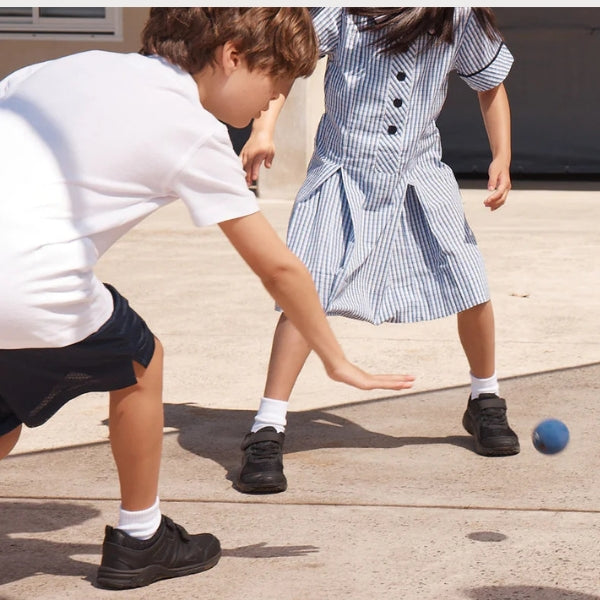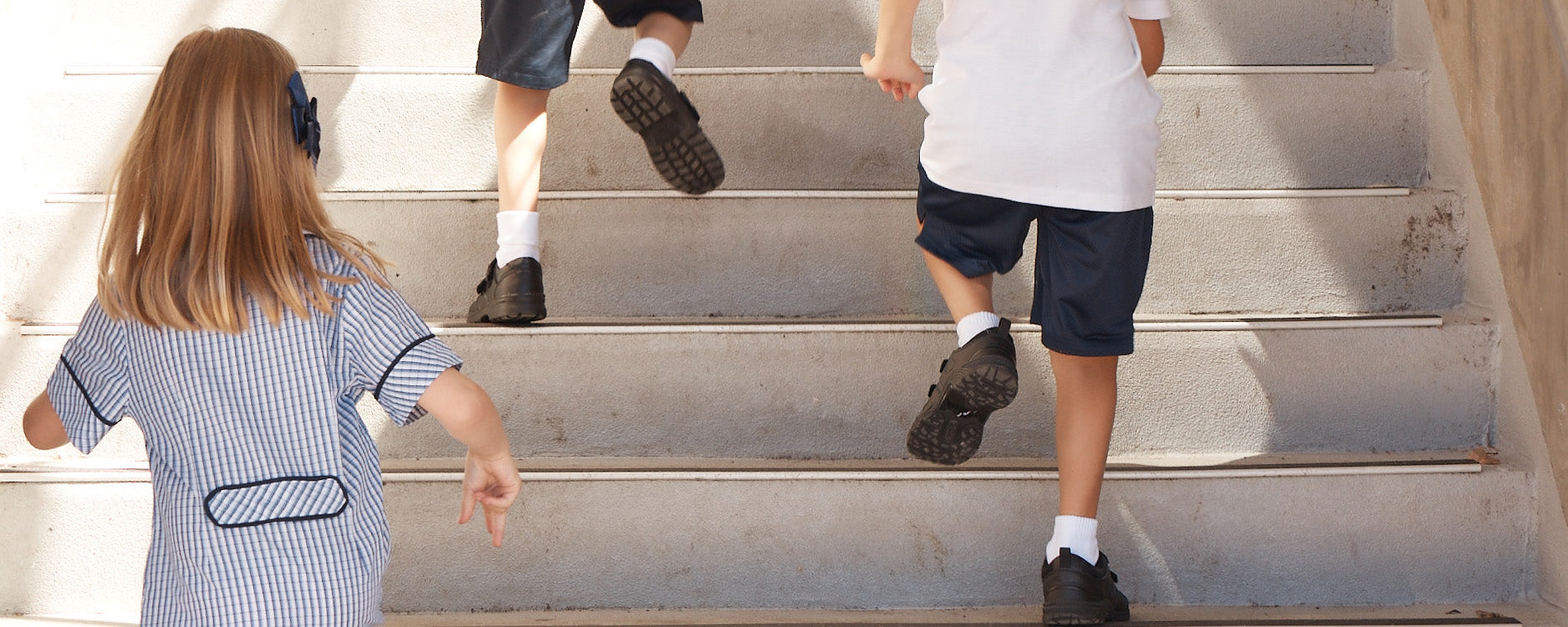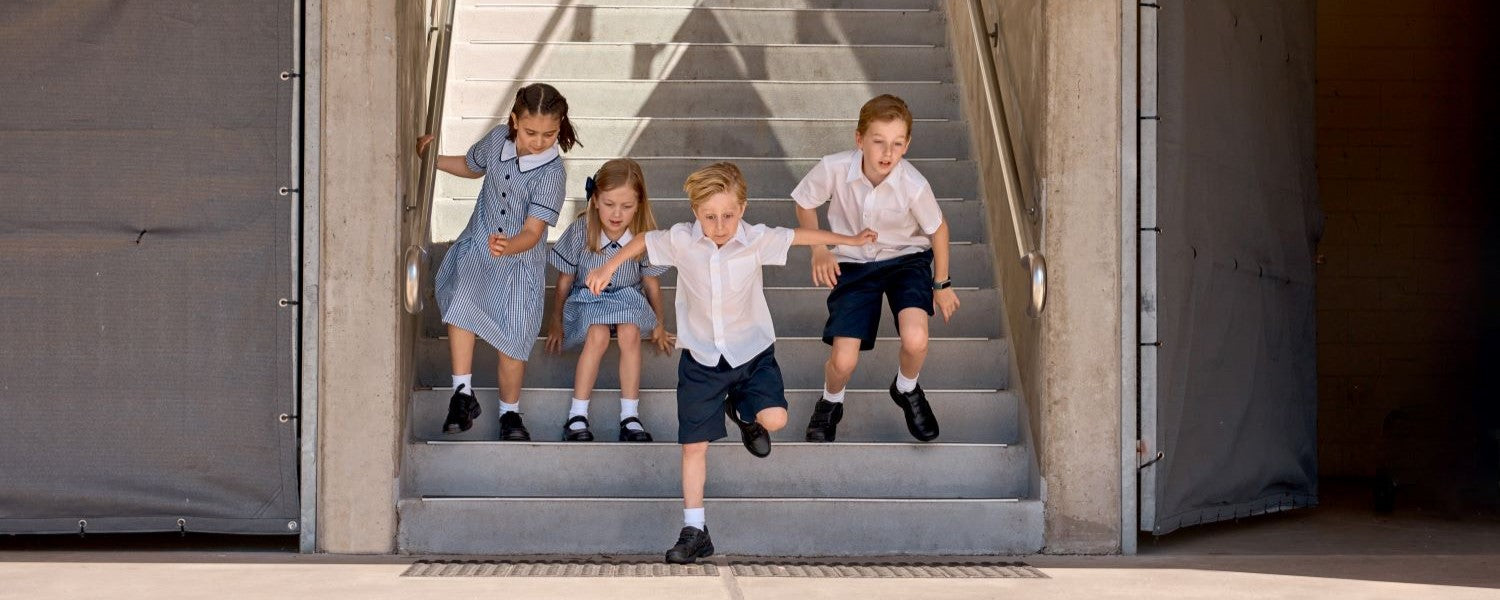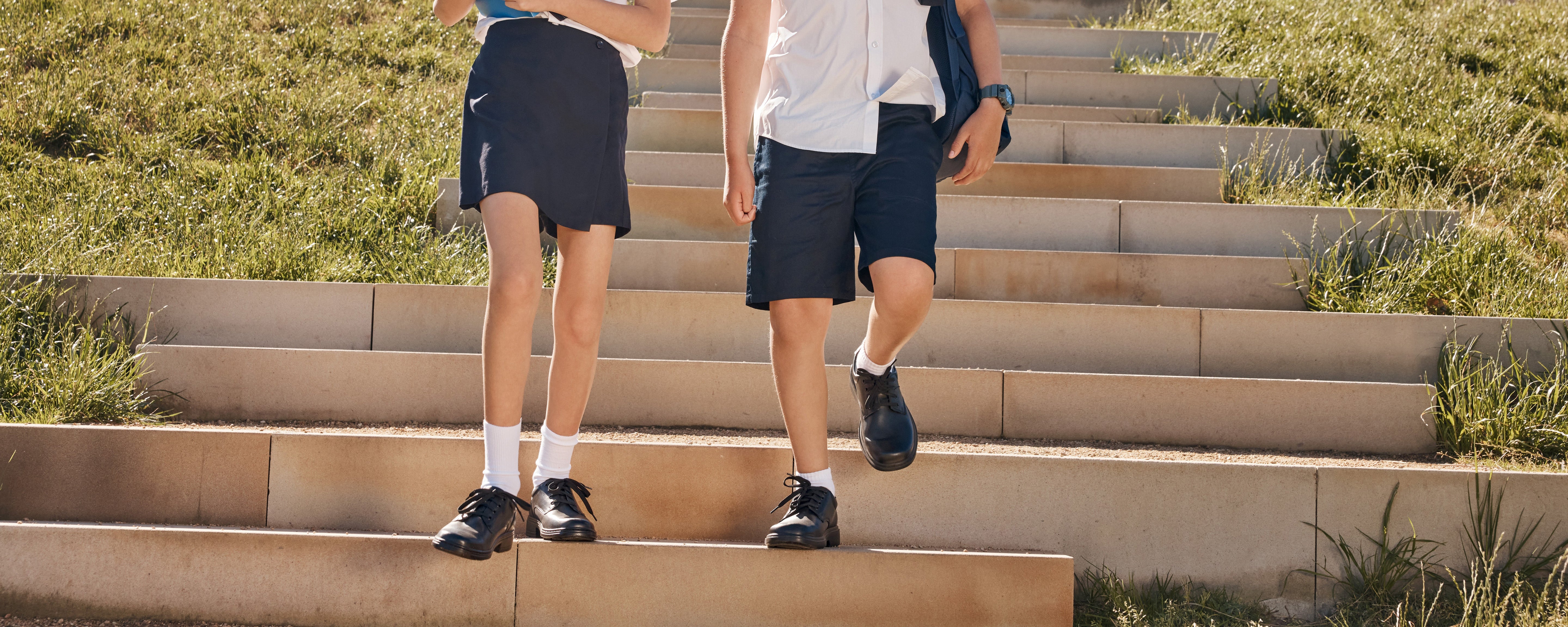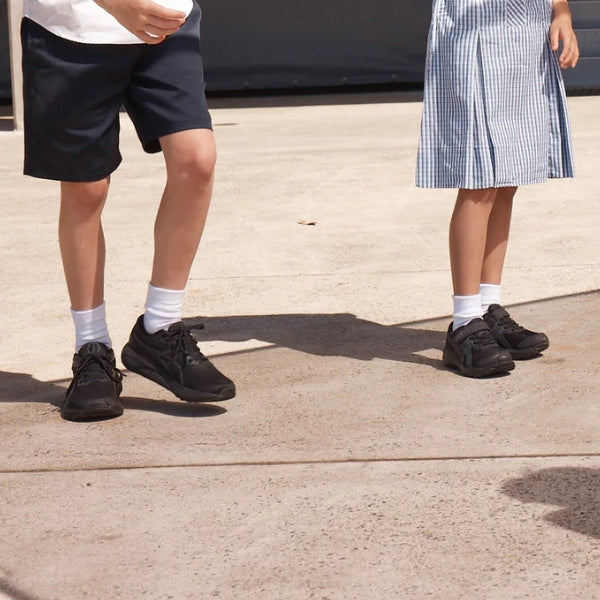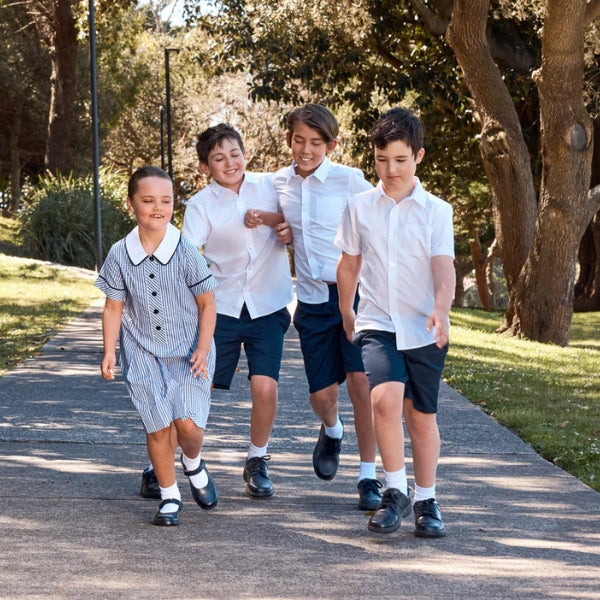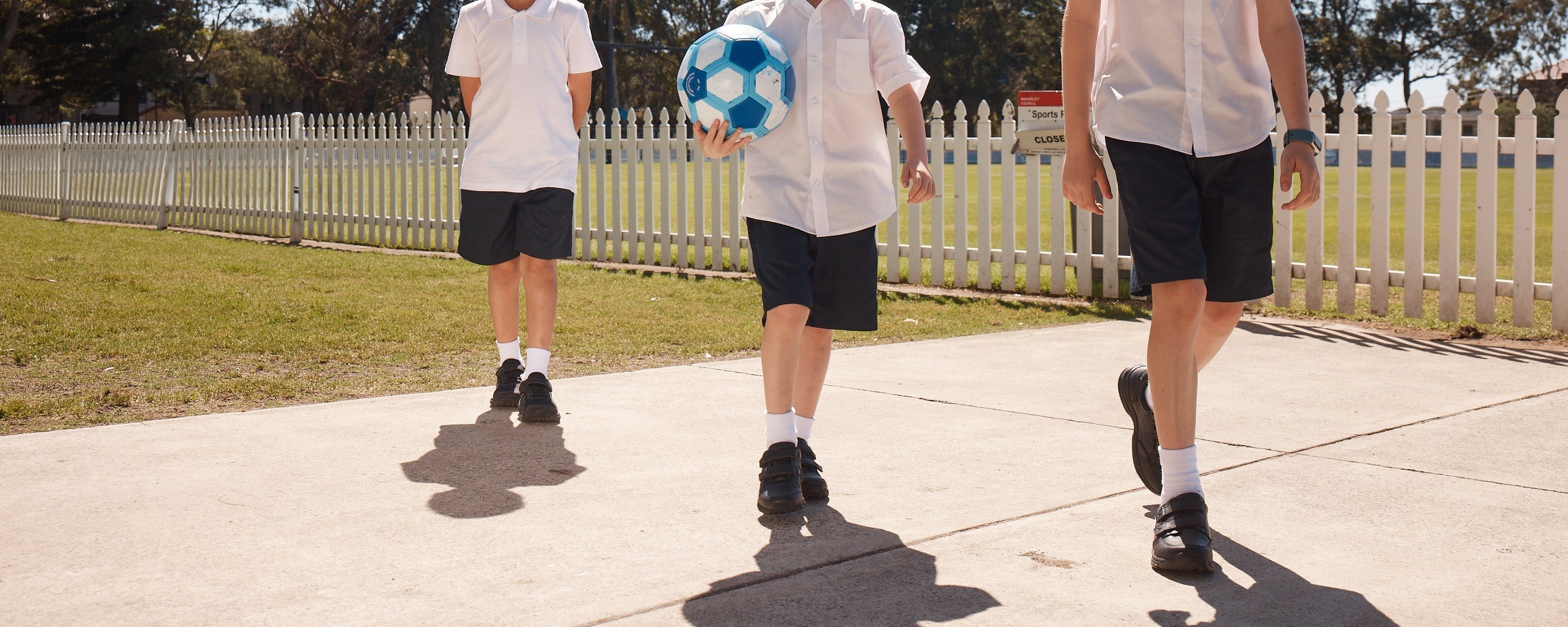
Helping Your Child With Independence Before Starting School
The long and lazy school holidays, the mad rush to get organized before day one, and the...it happens! All of a sudden, your little one is starting Kindy. You’ve spent months, if not years, preparing for your child to go to school. Finding the right school, ordering every checklist item for the start of the year, and joining group chats to stay on top of communication so that you can become a part of your new school community.
We sat down with Nicole Katzenellenbogan, an Occupational Therapist who shares some essential steps to helping your child be as independent and confident as possible before that big Day 1.

Helping your child with independence before starting school
Fostering independence in children is linked to a child’s ability to plan and problem solve simple daily tasks. These skills are important for learning and development as the ability to plan and problem solve will assist with learning to tackle new challenges, such as climbing outdoor play spaces, writing, building and making friends. Who knew that allowing a child to do simple things for themselves would impact on their learning in such an important way?
Break it down
Allow time to ‘teach’ your child a new skill by breaking them into manageable parts. Simple tasks, like taking their plate to the kitchen, packing away toys or taking their clothes to the laundry, may seem simple to us but involve a few processes at a time. Pick one new skill at a time to teach your child independence and allow them to master each skill before moving on to the next skill.
Empowering your child and their independence will help you survive the busy school years, while also raising a confident and happy child.
Make it familiar
Children feel more confident and can be independent when they feel secure in an environment. Have your child attend open days and orientation days so that they learn more about their new school environment. Chat to them about if they remember where to find the toilet, how to ask for help when they need it and what their favourite activity was so that they know where to go back to when they arrive. Over the holidays, chat about these ideas so that they feel ready to enjoy their new school.
It all starts at home. We’ve heard this before, and it’s definitely true when it comes to independence. How we engage our children and set them up in their daily routines either fosters confidence in them to be independent, or creates reliance on us as parents to take care of their needs.
In general, we want our children to be able to play independently in various ways, outdoor play, imaginative play, quiet and constructive play. This teaches them to come up with ideas, follow through with steps in a sequence and to be self-reliant.
Sounds fabulous, but how do I do this?

8 ways to build independence ahead of starting school
-
One chore at a time:
Have your child engage in simple chores such as packing away after themselves. This helps them plan, sequence and organise their space and belongings. This will be essential for taking care of their items at school and learning to pack away in a busy environment. -
The cutest kitchenhand:
Have children help with basic food preparation from finding their cutlery and crockery needed for the meal, or using child-safe knives to help chop and prepare their own snacks and meals. -
(Un)Zip it:
Teach children to open containers and zippers so that they are capable of doing this on their own for recess and lunch at school. It’s worth practicing this with their specific lunch box so they’re super confident. -
Lay out their ‘fit:
Help your child take out their clothes for school the night before so that this is ready and organized for them. By skipping that step the next day, you can ease up the morning rush. -
Step in the right direction:
Teach children to put their shoes on the right feet by having a large sticker cut in half and placed on each foot. When the shoes are placed together – the picture is complete. This visual prompt helps them see which shoe goes where. -
Routines rule:
Routines enable children to understand expectations, provide reassurance and predictability, and foster independence through repetition. Visual schedules or checklists may be helpful in having your child help pack their bag and tick off that their items are there. Having a visual schedule for the whole week will help your child anticipate what is happening the next day and prepare for what that means. -
Encourage decision making:
This could be a simple choice of what to have for their lunchboxes, to which friends they would like to have a play-date with. Little choices are great steps for growing their critical analysis and decision making skills.
-
Get ahead of the game:
Help children develop the skills they will need for Kindy including fine motor skills for holding the pencil, puzzles and gross motor skills. Empowering your child to be ready and confident among their peers is priceless. Spend time in your week developing these skills. There are so many ideas online for building fine motor skills that don’t involve fancy toys but rather simple home supplies such as tongs and pegs.

Tips for arrival time
- Be present with your child in all ways. Try not to be on your phone or only engaging with other parents at the gate. Set your child’s day off to a good start with a proper goodbye hug and sentiment for the day. This is likely going to minimise difficult behaviours at the gate as they feel secure, trusted and loved.
- Have your child carry their own bag into school for the day.
- Try not to carry them into the class but rather let them walk in holding your hand. This may also assist with separation difficulties at hand-over
Tips for pickup time
When you pick your child up from school, dedicate time to them distraction free. This is often easily done on the car ride or walk home. They come out of school each day with many emotions, stories from the day and lessons learnt. Give them the attention they need to chat and debrief about the day. These catch ups are where you can pick up on trends of what may be challenging for them, and guide you on how you can help them grow in these areas.
Remember, the change is big for parents and children! Prepare for being unprepared for everything (isn’t that just parenting summed up?) and know that each day is another opportunity to build your child into the best, most capable version of themselves.


















